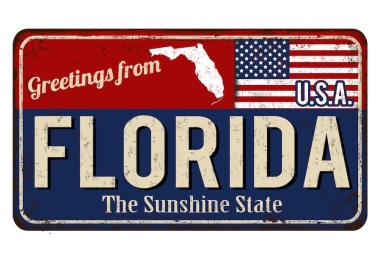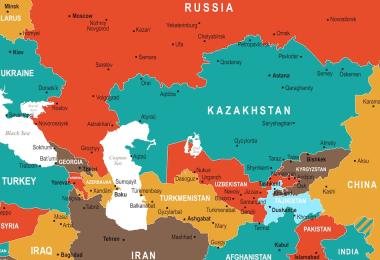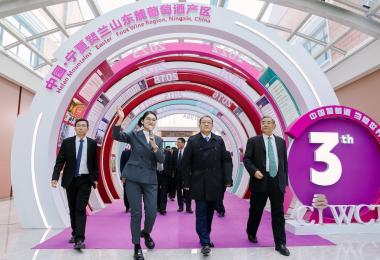When Watson’s Wine Cellars opened its doors in 1998, Hong Kong was a very different place. Only a year had passed since the island and the New Territories had been handed back by the UK to China, and the atmosphere was uncertain. How accommodating would the new regime be to the British expats who were a mainstay of Hong Kong business?
Quality wine distribution was still largely in the hands of a company called Rémy Fine Wines, whose wholesale business and eight shops sold around 1.5m bottles of wine per year. Most wine was drunk in restaurants and hotels, and the expats who did the majority of drinking, as David Webster, the then-head of Rémy recalled in a recent interview, were only beginning to move away from a diet that largely consisted of French white wine.
Watson’s Wine Cellars was an unlikely candidate to change that situation. Indeed, if you had mentioned Watson’s to most Hong Kong residents, they might have thought you were talking about the ubiquitous and eponymous chain of drugstores.
A very British approach
Wine was, however, more important for Watson’s than those residents might have realised. Until 1986, when the partnership broke up, AS Watson – the world’s largest health and beauty retailer, and subsidiary of the even larger multinational conglomerate CK Hutchison Holdings Limited – shared ownership of Remy Fine Wines with Rémy Cointreau.
A dozen years later, when Watson’s Wine Cellars re-entered the market – incidentally in competition with David Webster, who had remained at Rémy – it did so in a very different way. First, the shops looked fresh and airy, clearly modelled on British retail chains like Wine Rack. More significantly, the way the wines were sourced was different too. Newly appointed buyers took advantage of their experience in the tough environment of buying for UK supermarkets to introduce a broad range of wines with which Hong Kong wine drinkers would have been unfamiliar.
The following 18 years have seen even greater changes. The most dramatic one came in February 2008, when the Hong Kong government removed all duty on wine, which turned the city into a major wine hub. The second was the evolution of the chain’s customer base. When the business first opened, all point of sale material was in English and customers were generally expatriates. By the time Jeremy Stockman, a 50-year-old Australian, arrived as buyer in 2006, the majority of customers were already “Hong Kong Chinese first, and mainland Chinese second”. He adds that as the market continues to mature and to gain even greater knowledge and interest in all types of wine, he expects the trend “to continue with an increasing local focus”.
Today, there are 30 retail shops throughout Hong Kong (with two in Macau) and a range of 2,000 different wines, of which 400 are exclusive to the company. French wines still make up half of volume sold – and 60% of sales value – and tastings of Crus Classés Bordeaux continue to attract good audiences, but over 20 countries are now represented, including examples from India and Greece, source of the Kir-Yianni that was added to the range in May.
Cognac may still be a popular purchase in the Watson’s stores, but its distribution is not “nearly as widespread as previously”. Fine malt whisky, however, has seen very big growth, Stockman continues.
Firstly it was Scottish – driven by Macallan – and then some of the older, rarer examples. Then came Japanese spirits, and now Kavalan from Taiwan.
While it is tempting to list esoteric spirits and wines like these, every bottle on the shelf has to earn its keep, Stockman says. “Our retail space is some of the most expensive in the world, so we need to turn over the range.” Other costs associated with wine distribution in Hong Kong include 24/7 temperature control in stores as well as warehouses – in Hong Kong, many retail shops are situated in office buildings where all air conditioning is switched off at night.
Apart from their cool temperature, the stores offer a user-friendly experience, with bright space, an excellent selection and easy-to-reach bottles. Free in-store tastings are held regularly at all locations, and store representatives have undergone Wine & Spirit Education Trust (WSET) training.
What’s on offer
While there is a wide range on offer for the casual buyer, ranging from well-chosen, inexpensive bottles from southern France, Italy or Spain, to Châteaux Lafite and Petrus, Watson’s focus is on regular customers. A “massively important” part of the business is the two-tier Watson’s Wine Club. ‘Burgundy’ membership entails spending HK$2,000.00 ($260.00) within three months. If purchases over 12 months amount to a further $50,000.00 ($6,450.00), members are upgraded to Gold. Both kinds of members benefit from discounts and special offers tailored to their personal tastes, while Gold members get ‘priority access’ to limited-release wines and special events.
For higher-end wines, which provide much of Watson’s sales, Stockman says that consumers need to feel confident about both provenance and the relationship that they have with the seller. “In Hong Kong people are quite well off and happy to pay for premium wine.” For such clients, the priority is face-to-face relationships, which Stockman cultivates through some 200 small tasting events per year. At the start of Vinexpo, for example, he organised a lunch in a private room of the celebrated Caprice restaurant, where Pierre Lurton of Château d’Yquem and Château Cheval Blanc shared various vintages of both wines for eight important clients.
“So if [customers] want to buy a case of 1985 Cheval Blanc, they want to touch and feel and hold that bottle, and have confidence in the provenance,” which remains a concern for buyers throughout Asia, Stockman says.
Online wine sales are booming in China and Watson’s inevitably offers its customers the chance to buy through its website. Stockman points out, however, that e-commerce is not as important in Hong Kong as it is on the mainland, given the “tyranny of distance”: Smaller regions in the vast Chinese market need online platforms much more than Hong Kong residents do, he said.
“What we see in e-commerce in Hong Kong is the convenience to buy mid-priced wines,” he explained. “We do well in e-business, with ‘discoveries’ such as a Brunello di Montalcino at HK$400.00 ($51.00) per bottle with good reviews, and which we endorse: Our customers would order a case for delivery as an everyday drinking wine.”
Hong Kong wine drinkers for whom HK$400.00 is too high a price for an ‘everyday wine’ have the option of shopping at one of AS Watson’s PARKnSHOP supermarkets. Stockman also manages the sourcing for this chain, the largest in Hong Kong, because “It does make sense to have one set of buyers rather than sending two sets to different markets. And of course we can work with some suppliers with different ranges into both outlets.” The two brands, he goes on to say, “manage their own pricing, distribution and promotions.”
Diversification
Producers supplying Watson’s can also benefit from another possible route to market, in the shape of its wholesale business. “Retail – traditional and online – remains the most important part of our business, but sales to restaurants, hotels and clubs are growing well,” Stockman says, while pointing out that, unlike other distributors, Watson’s does not, for obvious reasons, tend to supply other retailers.
The most vexed question for any wine professional in Hong Kong concerns the approach to selling in mainland China. When Watson’s was launched, there was talk of rapid expansion there but, while over 60 PARKnSHOP stores have been opened in various cities, there is only one Watson’s Wine shop, at the Kerry Centre in Shanghai. As Stockman says, for the moment, expansion in the mainland is too unpredictable. “Opening retail stores in China is very complicated, given the complex laws, to get a license and set up premises.”
In any case, he might have added, plenty of Chinese premium wine buyers have been doing their wine shopping in Hong Kong, especially since the removal of all duty-related customs and administrative controls for wine in 2008. In that first year, imports surged by 80%, with a significant proportion being re-exported, officially or unofficially, to mainland China. Stockman remembers that in 2010 there was still “a gold rush” atmosphere, but that ended abruptly when austerity and anti-corruption laws were passed in mainland China in late 2012. “We saw that the market of people shopping for products that were then taken back to China dried up,” Stockman said. “But since 85% of our sales are to our Hong Kong-based wine members, it has not affected our business so much.”
Stockman is confident that Hong Kong’s increasingly knowledgeable residents offer plenty of potential for growth in the short term, at least. Hong Kong holds the lead for the most WSET Approved Programmes (31) in one city. And industry sources say that this curiosity can feed a potential niche: The Hong Kong market has annual per capita wine sales set at around 8 litres, compared to 11 in the United States, 22 in the UK and 42 in France.
The only striking gap in the Watson’s portfolio today is arguably the absence on its shelves of any premium Chinese wines, but Stockman expects to remedy that very soon. “I’m looking for interesting wines from all great and emerging areas,” he says, acknowledging that includes places like Ningxia. China’s leading wine region may be getting international recognition but it was not even on the wine map when AS Watson’s decided to expanded its retail operations from shampoo and aspirins to Champagne and Alberiño. It’s another sign of how much things have changed.
Watsons’ parent company, AS Watson (ASW), bills itself as the world's largest international health and beauty retail company, with operations in both Asia and Europe. Watson’s Wine is but one of 13 diverse retail brands in 25 markets with over 12,400 stories in Asia and Europe, including PARKnSHOP, the leading supermarket in Hong Kong, Macau and mainland China, as well as Europe’s popular health and beauty shop Rossmann, with over 3,100 stores in Germany, Poland, Hungary, the Czech Republic, Turkey and Albania. ASW is 75% owned by the multinational CK Hutchison Holdings Limited and the rest by Singapore’s government-owned Temasek Holdings.








